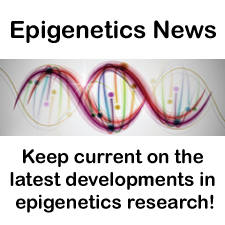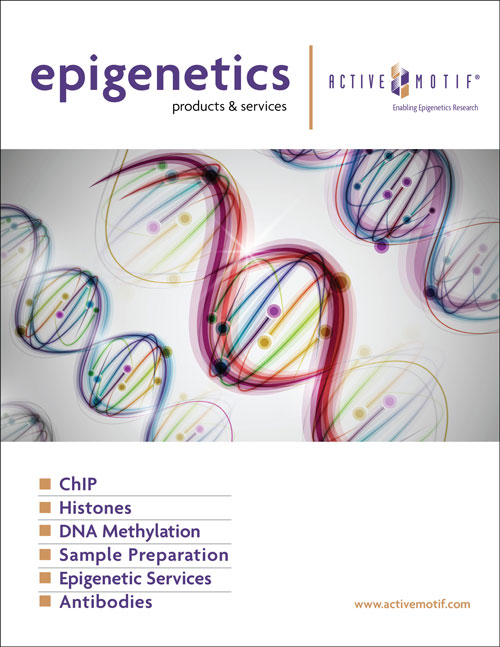<< Back to Targets & Applications Home Page
Antibodies for Epigenetic Research
Every gene has underlying epigenetic components that mechanistically contribute to its regulation. Therefore, researchers studying gene regulation will eventually find themselves exploring the epigenetics of gene regulation. The transition into epigenetics does not have to be intimidating because there are a number of epigenetic modifications that are well defined, thoroughly understood and established as hallmarks of epigenetic regulation. For those just starting in epigenetics we recommend our widely cited and extensively validated antibodies for against DNA variants and histone modifications. Click on the links below for more information on these antibodies.
| H3K4me1 and H3K27ac modifications | |
|---|---|
 |
The H3K4me1 and H3K27ac modifications mark enhancers – regions of the genome that contribute to cell-type specific activation of gene expression. Enhancers are often located thousands to tens of thousands of base pairs away from the genes they regulate. |
| H3K4me3 modification | |
 |
The H3K4me3 modification is found in the promoters of active genes as well as those genes that are poised for activation. |
| H3K9me3 modification | |
 |
The H3K9me3 modification is the typical epigenetic mark of constitutively repressed heterochromatin and works in concert with DNA methylation. Suv39h-dependent H3K9me3 accumulates at major satellite repeats (pericentric heterochromatin), and is associated with many other repetitive elements, such as LINEs. |
| H3K27me3 modification | |
 |
H3K27me3 is a repressive histone modification that is a hallmark of facultative heterochromatin. Its presence typically marks regions of the genome that are transcriptionally inactive. H3K27me3 silencing is mediated through the Polycomb complex. |
| H3K36me3 modification | |
 |
The H3K36me3 modification is found across the bodies of transcribed genes, is linked to transcriptional elongation and thus its presence is positively correlated with gene expression. |
| 5-mC modification | |
 |
DNA methylation is the most widely studied epigenetic event. 5-mC methylation, or the addition of a methyl group at the 5 position of cytosines in the genomic context of CpG, is associated with gene silencing. |
| 5-hmC modification | |
 |
The 5-hmC DNA modification has only recently become a hot area of research. 5-hmC results from the enzymatic oxidation of 5-mC by the TET family of cytosine oxygenases. The presence of 5-hmC modification at a gene is associated with its expression level. |



